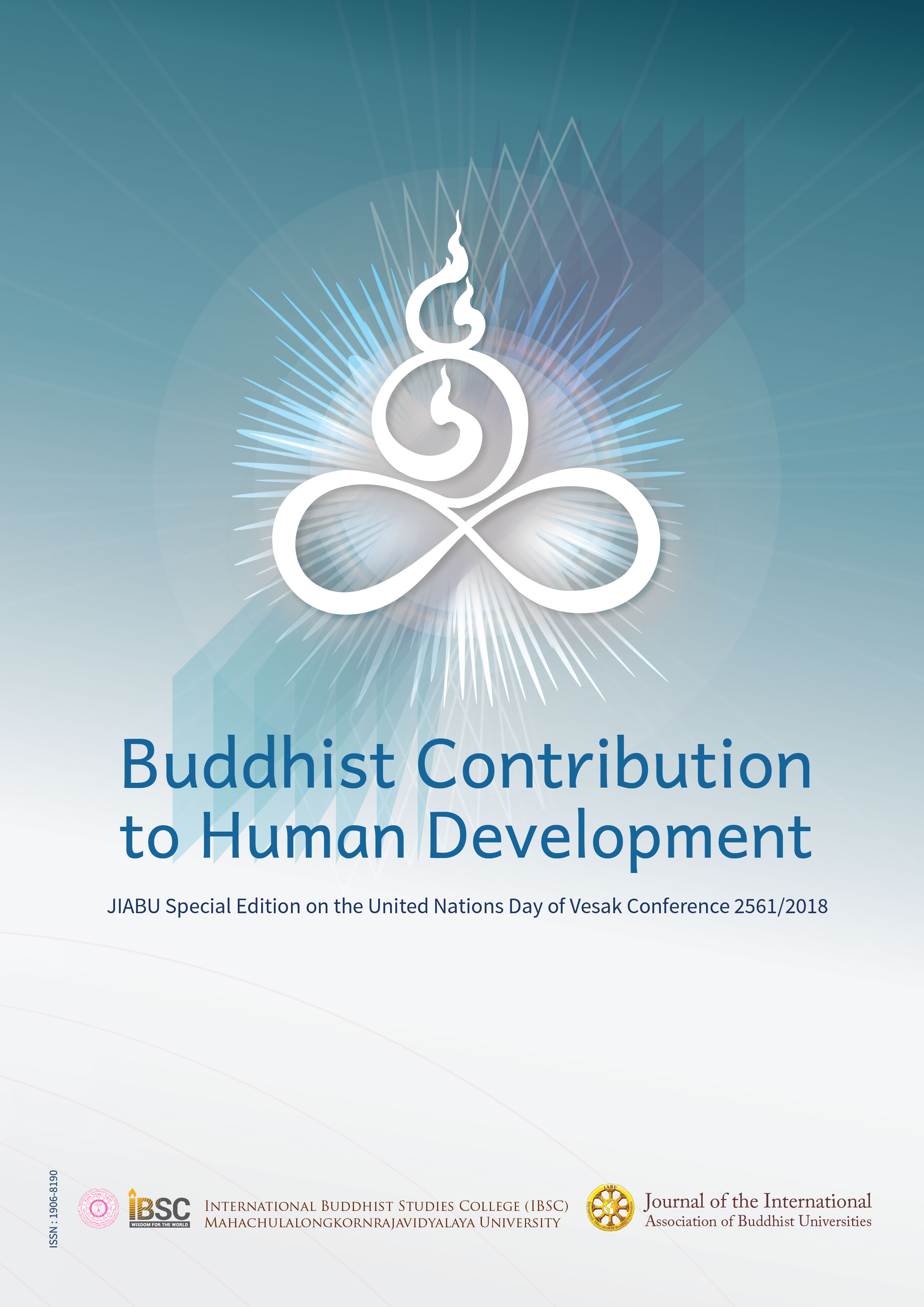Preserving Cultural Identity in an Interconnected World: The Case of Thailand
Main Article Content
Abstract
Cultural identity is an individual’s consciousness of one’s own culture which nourishes
oneself as a unique human being and a social member of one’s culture which is different from
other cultures. In order to preserve one’s cultural identity, one needs to know one’s own root,
learn to appreciate one’s own culture, understand oneself and others, and lead one’s life through
wisdom. In Thailand, most of Thai people are Buddhists. By means of Buddhist knowledge
and practices, they learn to preserve their Buddhist lives and live peacefully with others in
this interconnected world.
Article Details
Views and opinions expressed in the articles published by The Journal of the International Association of Buddhist Universities (JIABU), are of responsibility by such authors but not the editors and do not necessarily reflect those of the editors.
References
Reunkaew, B.E. 2524. (In Thai).
Bhumibol Adulyadej, His Majesty King. Kham Poh Sorn (The Collection of the Royal Speeches
on Suffi cient Economy). Bangkok : Krung Thep Printing, B.E. 2551. (In Thai).
Hoalt, Thomas Ford. Dictionary of Modern Sociology. Totawa, New Jersey : Littlefi eld, Adams
& Co., 1977.
Kroeber, A.L. and Kluckhohn, Clyde. Culture, A Critical Review of Concepts and Defi nitions.
New York : Vintage books. A Division of Random House, 1963.
Punyasingh, Temsiri, ed. Buddhism in Thai life. Second Edition. Bangkok : Amarin Press,
1981.
Royal Society of Thailand, The, Dictionary of Sociology, English-Thai. 3rd Edition, Bangkok
: The Royal Society of Thailand, B.E. 2549.
Schuler, Edgar A., et al. Readings in Sociology. New York: Thomas Y. Crowell Company.
Inc., 1971.
Tongprasert, Chamnong. Thai Culture, Thai Language. Bangkok: Mahachulalongkornrajavidyalaya
Press, B.E 2547.(In Thai).
Kinnaree vol. 24 No. 7 (July 2007) : 64.


